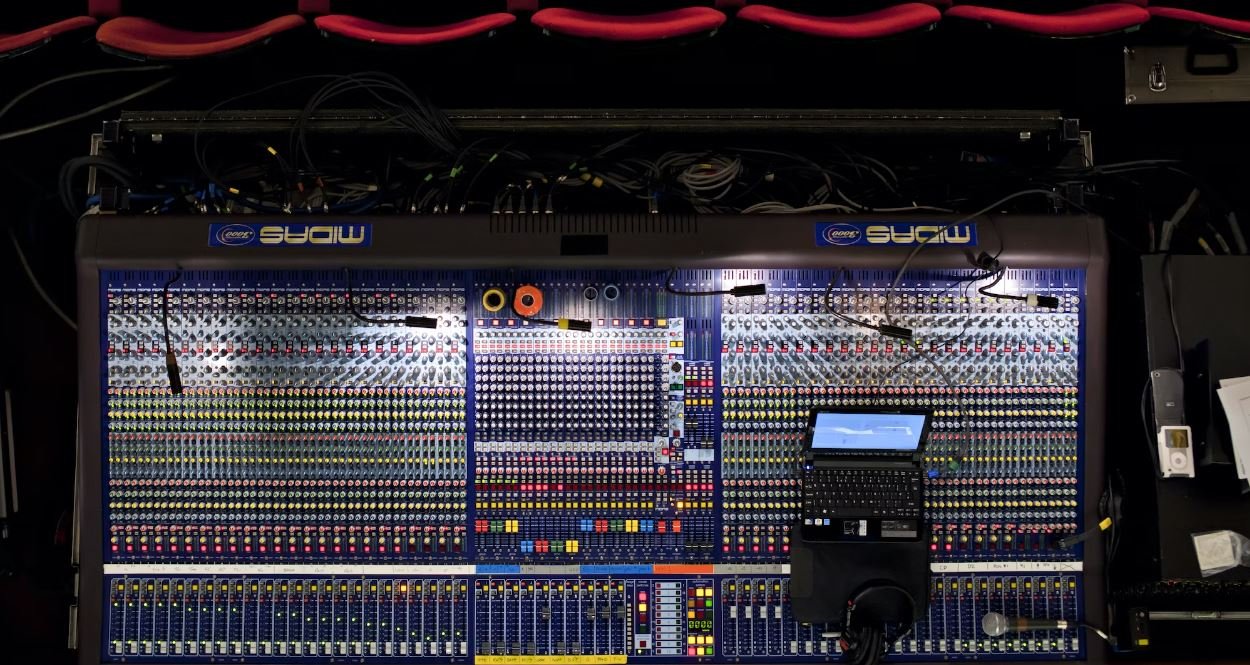What Is a Music Producer?
A music producer is an essential figure in the creation of music. They play a crucial role in overseeing and managing the artistic and technical elements of a recording project. While their specific responsibilities may vary, they generally work with artists and musicians to help shape the sound and quality of a song or album.
- Music producers oversee the artistic and technical aspects of a recording project.
- They collaborate with artists and musicians to shape the sound and quality of a song or album.
- Producers can specialize in different genres and have diverse skill sets.
Roles and Responsibilities of a Music Producer
Music producers have a wide range of roles and responsibilities in the music production process. Their primary goal is to bring out the best in the artists and the music they create. Some of their key responsibilities include:
- Working with artists to develop and refine their musical vision.
- Assisting with songwriting and composition.
- Collaborating with musicians to create arrangements and recording parts.
Music producers act as the creative backbone of a recording project, guiding and supporting the artists throughout the process.
Skills and Expertise
To be an effective music producer, one must possess a diverse set of skills and expertise. Beyond having a deep understanding of music theory and production techniques, producers must also excel in communication and leadership. They must be able to communicate their ideas and give direction to artists and engineers.
Some of the key skills and qualities of a music producer include:
- Technical proficiency in recording and mixing.
- Ability to provide constructive criticism and feedback.
- Knowledge of various musical genres and trends.
A successful music producer needs to be a skilled communicator, combining technical expertise with a keen artistic ear.
The Business Side
Aside from the creative aspects, music producers also handle the business side of the recording process. This includes budgeting the project, negotiating contracts, and managing the overall production timeline. They may also be involved in marketing and promoting the final product.
Here are a few business-related tasks that a music producer might handle:
- Securing funding for the recording project.
- Coordinating with record labels and distributors.
- Overseeing the production budget and expenses.
Successful music producers combine their artistic vision with business acumen to ensure a smooth and profitable recording process.
Types of Producers
Music producers come in various types, each specializing in different aspects of the music production process:
| Type | Description |
|---|---|
| Recording Producer | Oversees the recording process in a studio. |
| Mixing Engineer | Focuses on balancing and blending individual tracks to create the final mix. |
| Mastering Engineer | Prepares and finalizes the recorded tracks for distribution. |
The Evolving Role of the Music Producer
The role of a music producer has evolved significantly with advancements in technology and changes in the music industry. Today, producers have access to a wide range of recording and production tools that were once only accessible to professional studios.
Some notable changes in the music production landscape include:
- Increase in home and independent studios.
- Rise of digital audio workstations (DAWs) and software plugins.
- Emergence of self-produced and self-released music.
The democratization of music production has opened up new opportunities for aspiring music producers to create and distribute their own music.
Conclusion
In summary, a music producer is a key figure in the creation of music. They oversee the artistic and technical aspects of a recording project, collaborate with artists and musicians, and have a deep understanding of music theory and production techniques. While the role has evolved in recent years, the essential skills and qualities of a music producer remain the same.

Common Misconceptions
Misconception 1: Music producers only create beats
Many people believe that music producers are solely responsible for creating beats or instrumental tracks for songs. While this is a crucial aspect of their job, music producers are involved in much more than just beat-making. They also oversee the entire production process, including song arrangement, recording sessions, vocal coaching, editing, and mixing.
- Music producers are highly involved in the creative direction of a project.
- They work closely with artists to bring their vision to life.
- Producers often collaborate with songwriters to develop melodies and lyrics.
Misconception 2: Music producers only work with famous artists
Another common misconception is that music producers only work with famous artists or those who have already made a name for themselves. In reality, producers work with artists at various stages of their careers, including emerging talents and independent artists. Music producers play a crucial role in helping artists develop their sound and find their unique voice.
- Music producers work with up-and-coming artists to shape their sound and style.
- They often identify potential in unknown artists and help them gain recognition.
- Producers can work on a wide range of projects, from small indie releases to major label albums.
Misconception 3: Music producers just press buttons on a computer
Some people believe that music producers simply press buttons on a computer to create music. While technology is an essential tool for modern music production, being a music producer requires much more than technical skills. Producers need a deep understanding of music theory, composition, and arrangement, as well as the ability to communicate and collaborate effectively with artists and other professionals.
- Producers use their musical knowledge to guide artists and make creative decisions.
- They rely on their ears and intuition to shape the sound of a song.
- Music producers often work with live musicians and orchestrate complex arrangements.
Misconception 4: Music producers only work in recording studios
It is commonly assumed that music producers spend all their time in recording studios. While studios are a significant part of their working environment, producers also work in various other spaces. With advancements in technology, music production can now be done in home studios or even on the go with laptops and portable equipment.
- Many music producers have their own home studios where they work on projects.
- They sometimes travel to different locations, such as concert venues or artists’ homes, for recording sessions.
- Producers also spend time in post-production stages, editing and mixing tracks.
Misconception 5: Music producers only focus on technical aspects
While technical skills are important, music producers are not solely focused on the technical aspects of music production. They are responsible for maintaining the artistic integrity of a project and ensuring that the final product conveys the desired emotions and messages. Music producers often act as mentors and coaches, offering guidance and support to artists throughout the creative process.
- Producers help artists develop their sound and bring out their best performances.
- They provide feedback and suggestions to enhance the overall quality of a song.
- Music producers use their creativity and artistic vision to transform raw ideas into polished and cohesive tracks.

The Evolution of Music Production: From Analog to Digital
Music production has undergone a remarkable transformation over the years, thanks to technological advancements. The evolution from analog to digital production methods has revolutionized the way music is created and recorded. The following tables provide interesting insights into different aspects of music production.
The Rise of Digital Audio Workstations (DAWs)
With the advent of digital technology, recording and editing music became easier and more accessible than ever before. Digital Audio Workstations (DAWs) have become the centerpiece of modern music production. The tables below highlight interesting facts about some popular DAWs.
The Top Music Producers of All Time
Throughout history, certain music producers have left an indelible mark on the industry with their exceptional talent and creative vision. The following tables introduce some of the most influential and successful music producers of all time.
Grammy Awards for Producer of the Year
Every year, the music industry recognizes outstanding music producers through the Grammy Awards. The accolade for Producer of the Year is highly esteemed and reflects the exceptional contributions made by these individuals. The tables below showcase the winners of this prestigious award.
The Impact of Sampling in Music Production
The practice of sampling has become a fundamental element in modern music production. It involves taking a snippet of a pre-existing recording and incorporating it into a new composition. The tables below explore the influence of sampling in different genres and its effect on music production.
The Cost of Producing a Hit Song
Producing a hit song often involves multiple factors, including studio time, hiring musicians, and post-production expenses. The tables below shed light on the financial aspects of producing successful songs and albums.
The Most Expensive Music Videos ever Produced
Music videos are an essential part of promoting songs and enhancing the overall artistic experience. Some music videos have raised the bar for extravagance, with eye-watering production costs. The tables below reveal the most expensive music videos ever created.
The World’s Biggest Music Producers
While individual music producers have achieved great success, there are also prominent production companies that have gained worldwide recognition. The following tables present some of the biggest and most influential music producers in the industry.
The Effect of Production Techniques on Sound Quality
Music production involves various techniques that can significantly impact the final sound quality. From compression to equalization, these technical aspects greatly contribute to the overall sonic experience. The tables below explore the effects of different production techniques on sound quality.
The Importance of Collaboration in Music Production
Collaboration plays a crucial role in music production, allowing artists and producers to combine their talents and perspectives to create something unique. The tables below highlight notable collaborations in the industry, demonstrating the significance of working together.
From the evolution of technology to the influence of producers and the many factors that shape the final product, music production is a complex and fascinating field. These tables provide a glimpse into the diverse aspects of music production, showcasing the creativity and dedication required to produce exceptional music.
Frequently Asked Questions
What Is a Music Producer?
A music producer is an individual responsible for overseeing and managing the entire process of creating a musical recording. They work with artists, audio engineers, and other professionals to shape the sound and direction of a recording. A music producer may handle tasks such as song arrangement, session musician coordination, audio engineering, and post-production editing.
What Does a Music Producer Do?
A music producer handles various tasks throughout the recording process, including:
- Working closely with artists to develop and refine their musical vision
- Selecting and booking appropriate recording studios
- Arranging and structuring songs
- Overseeing the recording process and providing guidance to musicians and engineers
- Mixing recorded tracks to achieve a balanced and cohesive sound
- Mastering the final tracks for release
- Collaborating with artists to create a unique and marketable sound
How Does a Music Producer Work?
A music producer typically begins by meeting with artists to discuss their goals and musical ideas. From there, they may assist in writing or arranging songs, select suitable musicians or session players, and book studio time. During recording sessions, the producer oversees the technical aspects of the process, provides feedback and direction to musicians, and ensures that the overall vision is being realized. The producer then works on mixing and post-production, where they make adjustments to the recorded tracks to achieve the desired sound.
What Skills Does a Music Producer Need?
A music producer requires a combination of technical and creative skills. Some essential skills include:
- Strong musical knowledge and understanding of various genres
- Proficiency in audio recording and production software
- Excellent communication and interpersonal skills
- Ability to work well under pressure and meet deadlines
- Attention to detail and a good ear for sound
- Problem-solving and decision-making ability
How Does a Music Producer Make Money?
Music producers can earn money through various channels, including:
- Producer fees, which can be negotiated on a project basis or as a percentage of the sales
- Royalties from the sales or streaming of the recorded music
- Publishing rights and licensing fees for the use of the music in other media
- Sponsorship or endorsement deals
- Live performances as a DJ or musician
What Is the Difference Between a Music Producer and an Audio Engineer?
While both roles are involved in the recording process, a music producer focuses more on the artistic vision and overall creative direction, while an audio engineer focuses on technical aspects such as setting up microphones, operating recording equipment, and ensuring optimal sound quality.
How Can I Become a Music Producer?
To become a music producer, you can follow these steps:
- Develop a strong understanding and passion for music
- Learn music theory and production techniques through self-study or formal education
- Gain hands-on experience by producing your own music or collaborating with other artists
- Network and build relationships within the music industry
- Stay updated on the latest trends and technologies in music production
Who Are Some Famous Music Producers?
There are many famous music producers who have made significant contributions to the industry. Some notable examples include:
- Quincy Jones
- Rick Rubin
- Dr. Dre
- George Martin
- Pharrell Williams
- Timbaland
Can a Music Producer Work in Different Genres?
Yes, a music producer can work with artists from different genres. Some producers choose to specialize in a particular genre, while others have worked across multiple genres and styles, showcasing their versatility and adaptability.




